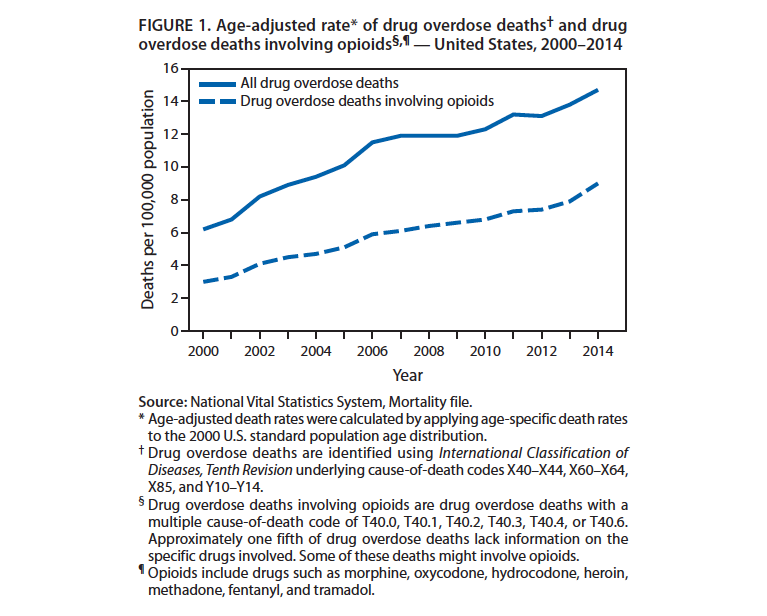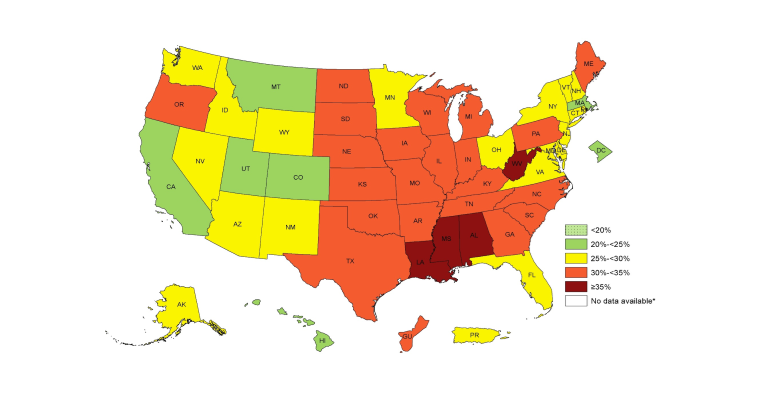Avoiding the Public Health Triple Fail.
 As we reflect on Martin Luther King Jr. Day this weekend, we rerun a previous Dean’s Note, on social justice and public health, in this week’s SPH This Week. Today, I wanted to talk about a concept I have been mulling recently: How we avoid making mistakes in public health.
As we reflect on Martin Luther King Jr. Day this weekend, we rerun a previous Dean’s Note, on social justice and public health, in this week’s SPH This Week. Today, I wanted to talk about a concept I have been mulling recently: How we avoid making mistakes in public health.
Th
We take as examples of triple fail scenarios in public health, (1) pharmaceutical approaches to chronic non-cancer pain and the opioid epidemic, and (2) a misdirected focus on personal risk factors in the obesity epidemic.
Chronic Pain and the Opioid Epidemic
巴勒斯坦权力机构

Russ RA, Aleshire N, Zibbell JE, Gladden RM. Increases in drug and opioid overdose deaths–United States, 2000—2014. MMWR Morb Mortal Wkly Rep. 2016; 64: 1—5; http://www.ncbi.nlm.nih.gov/pubmed/26720857
The Obesity Epidemic—A Misplaced Focus on Individual Risk Factors
Th
This struggle to keep weight off is reflected clearly even in population culture, including recently among former contestants from the weight loss competition reality television show “The Biggest Loser.” Echoing the sentiments of those former contestants, a study of obese college students attending a university weight loss clinic found that they were disappointed by the standard weight loss outcomes produced by best practice behavioral treatments. Regarding the cost effectiveness of diet and exercise interventions, scientific literature has been mixed. The ACE study found that treatments involving counseling to induce behavior change related to diet and physical activity are not very cost-effective, while other studies have suggested some potential for cost effectiveness, even as the lack of evidence for the efficacy of these approaches makes these claims dubious.

Figure 2. Prevalence of Self-Reported Obesity Among US Adults by State and Territory, BRFSS, 2015
Adult Obesity Prevalence Maps. Centers for Disease Control and Prevention Web Site. https://www.cdc.gov/obesity/data/prevalence-maps.html Accessed January 11, 2017.
Avoiding Future Public Health Triple Fails
Th
I hope everyone has a terrific week. Until next week.
Warm regards,
Sandro
Sandro Galea, MD, DrPH
Dean and Professor, Boston University School of Public Health
Twitter: @sandrogalea
Acknowledgement: I am grateful for the contributions of Greg Cohen, MSW, to this Dean’s Note.
Previous Dean’s Notes are archived at: /sph/tag/deans-note/
Comments & Discussion
Boston University moderates comments to facilitate an informed, substantive, civil conversation. Abusive, profane, self-promotional, misleading, incoherent or off-topic comments will be rejected. Moderators are staffed during regular business hours (EST) and can only accept comments written in English. Statistics or facts must include a citation or a link to the citation.